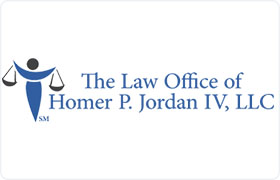Norcross Divorce & Family Law Lawyer, Georgia
Sponsored Law Firm
-
 x
x

Click For More Info:
-
The Law Office of Homer P. Jordan IV, LLC
125 Townpark Drive Suite 300 Kennesaw, GA 30144» view mapDivorce & Family Law Legal Solutions for a Brighter Tomorrow
At The Law Office of Homer P. Jordan IV, LLC in Kennesaw, we are dedicated to helping clients throughout the Atlanta area, including Cobb, Cherokee and Paulding counties.
800-590-3350
William Hansel Kitchens
✓ VERIFIEDCriminal, Divorce & Family Law
Specializing in Family and Criminal Law. Also proficient in personal injury, probate, landlord-tennant land juvenile practice.
FREE CONSULTATION
CONTACTJulie Ernst-Fortin
Juvenile Law, Mediation, Family Law, Divorce
Status: In Good Standing Licensed: 30 Years
James Edgar Holmes
Military & Veterans Appeals, Dispute Resolution, Federal Trial Practice, Family Law
Status: In Good Standing Licensed: 46 Years
W. Phillip Mccurdy
Dispute Resolution, Equine, Federal Trial Practice, Federal Appellate Practice, Family Law
Status: In Good Standing Licensed: 37 Years
Keith Fitzgerald Brandon
Divorce & Family Law, Criminal, Accident & Injury, Divorce
Status: In Good Standing Licensed: 37 Years
 Homer Jordan Kennesaw, GA
Homer Jordan Kennesaw, GA AboutThe Law Office of Homer P. Jordan IV, LLC
AboutThe Law Office of Homer P. Jordan IV, LLC Practice AreasExpertise
Practice AreasExpertise


